Contents
Starvation induces cannibalism!
Drosophila melanogaster larvae are classified as herbivores. They usually feed on herbivorous diet under normal conditions. During starvation, they are observed to feed on larger larvae of their own species and carcasses of other flies. Interesting thing is they even ate eggs of their own kind.
These cannibalistic larvae developed as normal, when they were grown with adequate nutrition. This study suggest that nutritionally stressed Drosophila show distinct and unusual feeding behaviours. These include detritivorous, cannibalistic and/or carnivorous behaviours.1
But how can that happen?
Animals avoid certain food materials due to activation of certain taster receptors that are termed to produce ‘bitter’ taste. What happens to Drosophila’s bitter taste during starvation? Another study gives the answer.
Can animals sense ‘taste’?
In animals, long range food searching behaviuors are driven by odour. But taste helps to evaluate if it is suitable for consumption. Most animals possess taste receptors that detect potentially harmful chemicals.
In humans, materials that activate those taste receptors are termed as ‘bitter’ substances. The term ’bitter’ is used in all animals including insects to represent materials that induce such taste receptors. It never means that they can identify a taste ‘bitter’ like humans.2
You may be interested in How do animals see in the dark?
How do taste receptors work in flies?
In a drosophila’s taste system, neurons that respond to various tastants are termed as Gustatory Receptor Neurons or GRNs. Most well characterized GRN types are ‘sweet’ and ‘bitter’.
When neurons for Sweet taste are activated, they promote feeding behaviour such as extension of proboscis (Proboscis Extension Reflex or PER). If neurons for Bitter taste are activated, it induces avoidance behaviour. It also terminates PER and prevents flies from ingesting toxic food.
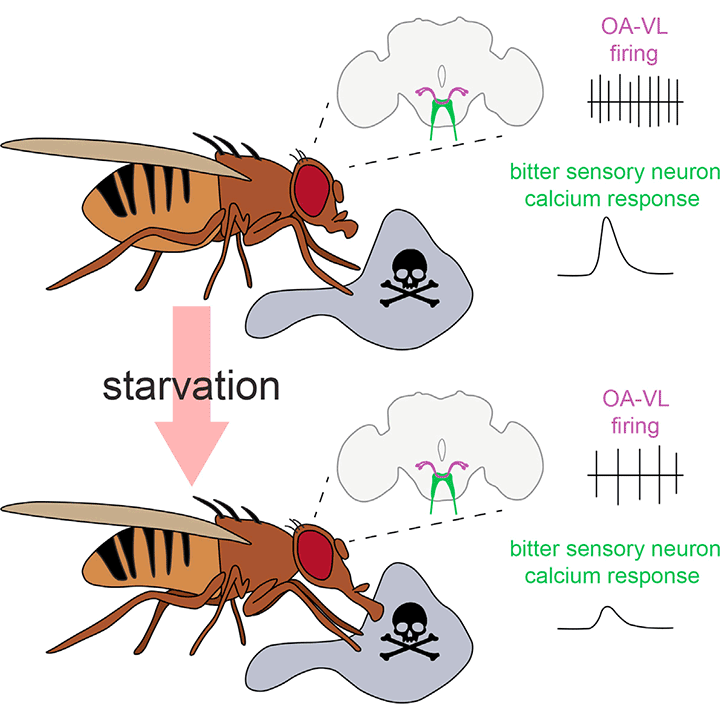
Starvation stops ‘bitter’ taste
Non availability of food substances in animals leads to dramatic changes in feeding behaviour. During starvation most animals accept foods that are normally rejected.
A recent study conducted by a team led by Michael Gordon from University of British Columbia has shown that starvation can reduce the activity of ‘bitter’ taste neurons in flies.3
This shift in behaviour in flies depends on changes in olfactory system and gustatory system. This is effected through the modulation of olfactory neurons of peripheral and central nervous system.
In drosophila’s body there is a small cluster of neurons that produce neurotransmitters, octopamine and tyramine. These are named as Ventrolateral cluster of Octopaminergic neurons or OA-VLs.
According to the new study, these neurons modulate ‘bitter’ GRN output. During starvation, the activity in OA-VL neurons is reduced. This in turn leads to inactivation of ‘bitter’ taste responses.
Researchers also genetically silenced the OA-VL activity to observe the effect. And this resulted in the reduction of activity of bitter taste too.
This study clearly shows that OA-VL neurons play a vital role in the survival of fries during starvation. They help the flies to balance the risk of bitter food against death due to starvation.
[cite]

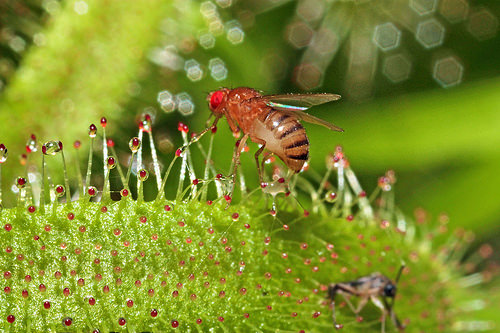


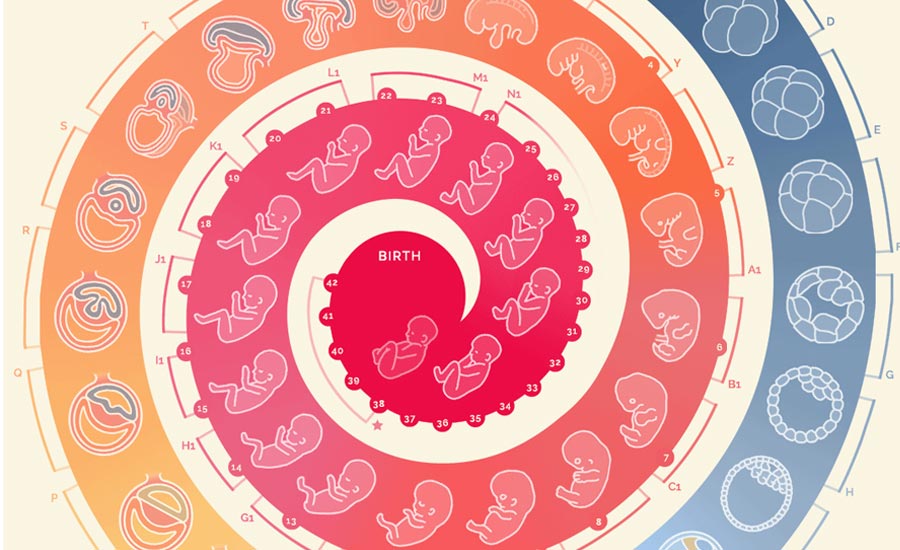
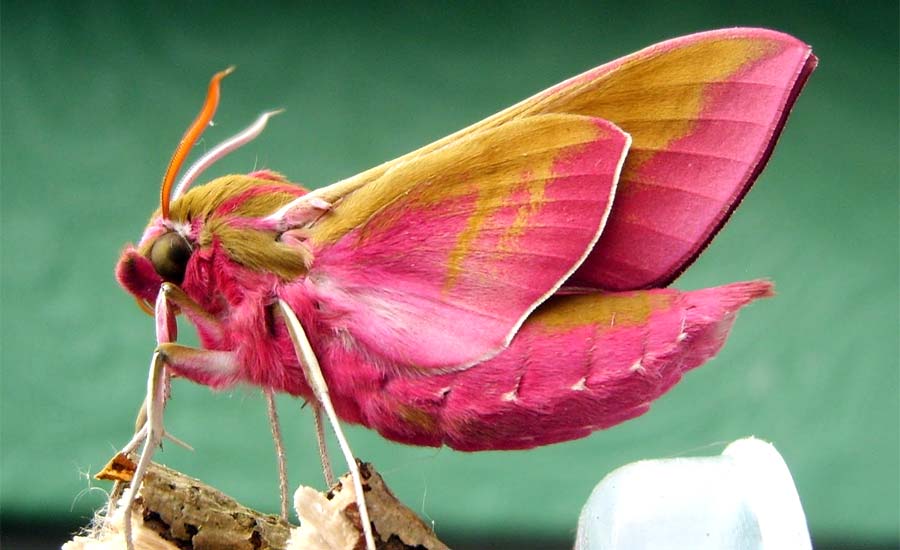
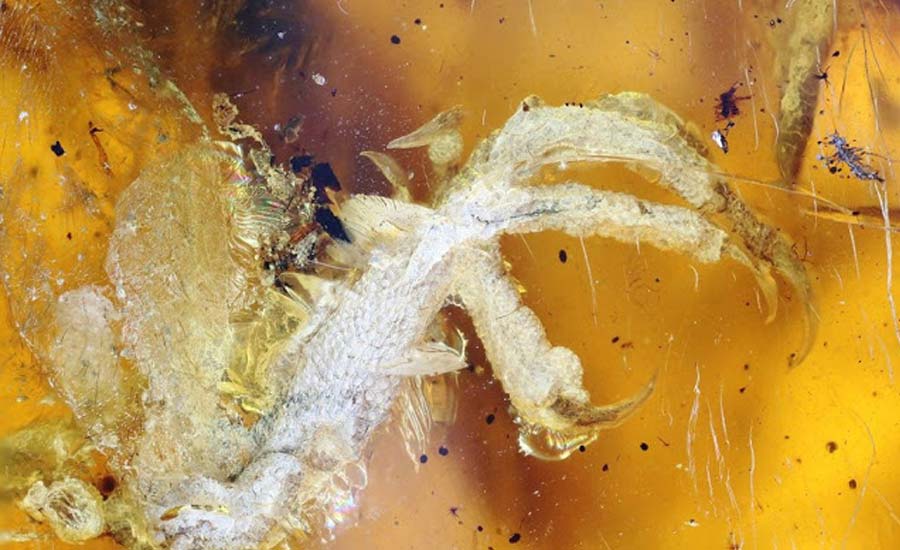
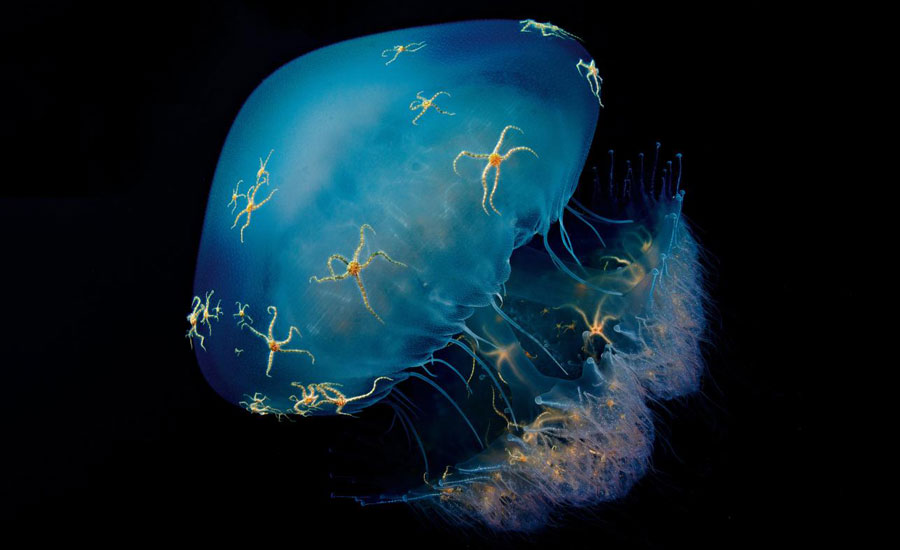

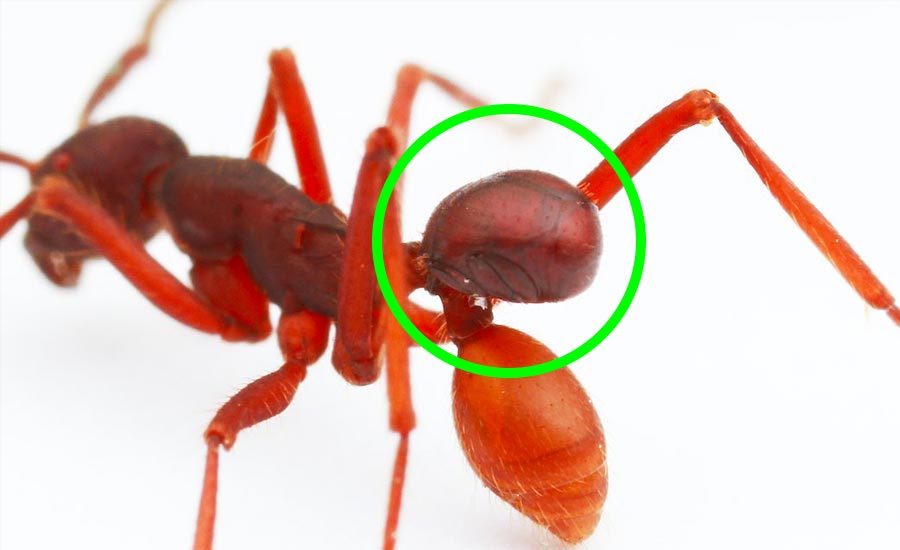
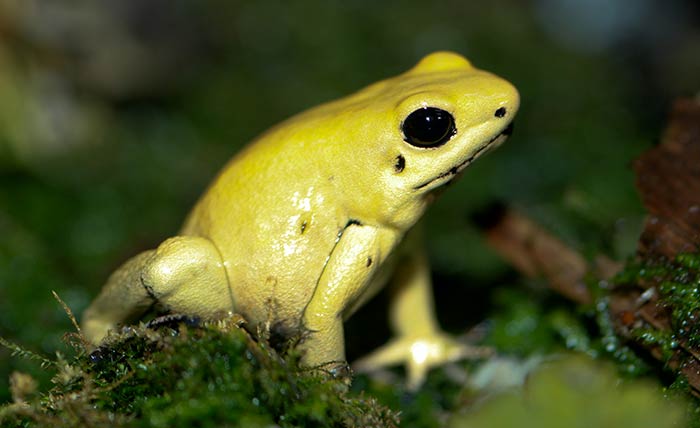


The website looks fantastic !! Great job